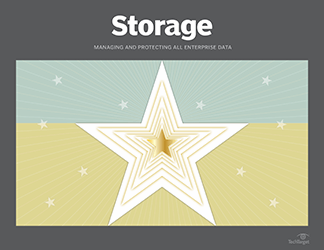PRO+ Premium Content/Storage
Access your Pro+ Content below.
Hot data storage technology trends for 2019

This article is part of the Storage issue of February 2019, Vol. 17, No. 9
Rodney Brown, Paul Crocetti, Garry Kranz, Dave Raffo, Carol Sliwa and Johnny Yu also contributed to this story. Once again, we put on our prognostication glasses to conjure up what we believe will be the hottest data storage technology trends over the next 12 months. Welcome to Hot Techs 2019! Our Hot Techs focus is on newer storage technologies already available for purchase and deployment. So, for the 16th year running, to be considered one of the hot trends, a technology must have already proven its usefulness and practicality. As with the previous 15 years, nothing impractical or too futuristic makes our hot list. These are technologies storage pros can use here and now. Sit back, relax and feel free to agree or disagree as we, the editors and writers at Storage magazine and SearchStorage, lay out the latest trends. This year's list includes cheaper and denser flash, NVMe-oF, AI and machine learning, multi-cloud data management and composable infrastructure. Read on and find out why these made the grade for hot data storage ...
Features in this issue
-
The best enterprise storage products of 2018
Get to know the 15 top enterprise storage products selected from a field of more than 100 in the 'Storage' magazine and SearchStorage annual Products of the Year competition.
-
A secondary storage management answer to mass fragmentation
A study finds mass secondary data fragmentation across storage silos is negatively affecting IT staff morale and the ability of enterprises to comply with regulations.
News in this issue
-
Top 5 enterprise storage trends of 2018
Dave Raffo won't pretend to know what 2019 will bring to the world of enterprise data storage, but he does know what he learned while following the data storage industry in 2018.
Columns in this issue
-
Cloud repatriation and the trend away from all things cloud
Companies are starting to backtrack when it comes to their enthusiasm for public clouds. More and more are bringing workloads and storage resources back in-house.
-
Data protection systems must address GDPR, ransomware concerns
Backup products don't have a granular enough understanding of data to scan or analyze it effectively and fully meet today's privacy and security requirements.
